A call to action for all Rohingya Children
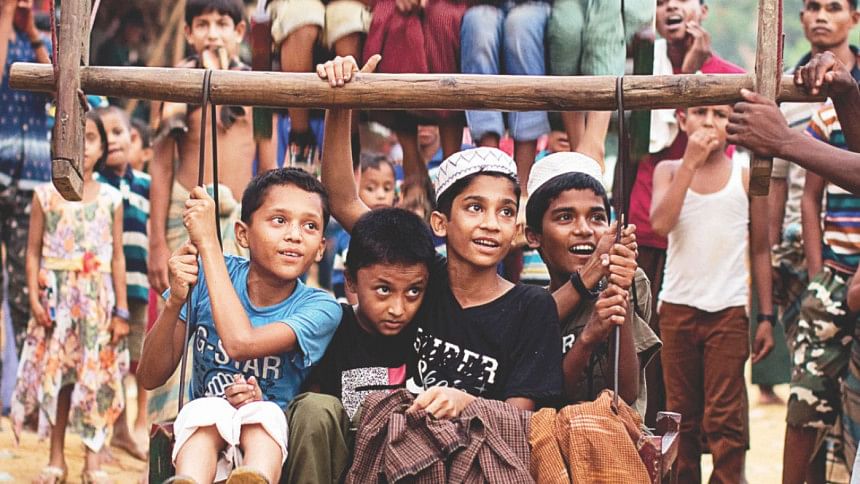
Despite the immense humanitarian effort led by the Government of Bangladesh over the past year, the lives and futures of more than 380,000 Rohingya children and their families who fled across the Myanmar border in late 2017 remain in peril. The same is true for around 360,000 children - most of them Rohingya - who are in need of humanitarian assistance in Myanmar's Rakhine State.
Restoring and guaranteeing the rights of these children is an obligation for both Myanmar and Bangladesh as States Parties to the Convention on the Rights of the Child (CRC), which requires them to protect the rights of child refugees and asylum seekers, and ensure they receive humanitarian assistance.
To better protect Rohingya children, and help keep alive their hopes of a better future, bold and coordinated action is needed by the Governments of Myanmar and Bangladesh, with the active support of the international community.
A Call To Action For All Rohingya Children
UNICEF calls on the Government of Bangladesh to:
- Provide more land to decongest the camps in southern Bangladesh, allowing adequate access to water, sanitation, health, nutrition, education and other services. Some land has been allocated, but more is needed. The relocation of refugees must be voluntary;
- Work with the international community towards a more sustainable approach to the refugee crisis, ensuring support for both refugees and the host community;
- Support the rapid expansion of quality primary education for all children in the camps through the Learning Competency Framework and Approach, enabling children to develop literacy, numeracy and life-skills in a protective environment;
- Support the provision of life-skills and livelihoods for adolescents;
- Prioritise birth registration for all Rohingya children born in Bangladesh;
- Recognise the refugee status of all Rohingya children and their families living in Bangladesh, and sign the 1951 Refugee Convention and the 1961 Convention on the Reduction of Statelessness;
- Undertake additional steps to protect girls and women inside and outside the camps, including measures to prevent and tackle child trafficking.
Unicef Calls On The Government Of Myanmar To:
- Provide protection for Rohingya children and all other vulnerable children in Rakhine State;
- Take concrete action to address grave violations against children in Rakhine, particularly those committed following the outbreak of violence in late August 2017;
- Allow unrestricted access for both humanitarian and development organisations to deliver assistance and services for the most vulnerable in all areas of Rakhine state;
- Implement the recommendations of the Advisory Commission on Rakhine State including to recognize the basic rights of the Muslim population – covering freedom of movement, the right to access basic services such as education and health; and meaningful livelihoods;
- Create appropriate conditions to allow the voluntary, safe and dignified return of Rohingya refugees to their former communities. Rohingya families themselves must be closely consulted on any decisions regarding their futures;
- Ensure that children from all communities have equal access to quality education at all levels of pre-primary, primary and post-primary without discrimination in an inclusive, safe, child-friendly learning environment;
- Work towards the closure of IDP camps in central Rakhine in a manner adhering to international standards and that is acceptable to IDPs themselves;
- Take all necessary measures to reduce inter- communal tensions with sustained efforts to eliminate discrimination and increase social cohesion;
- Sign the 1951 Refugee Convention and the 1961 Convention on the Reduction of Statelessness.
UNICEF reiterates its readiness to support the realization of these critically-important goals, working in partnership with both Governments towards the achievement of our common goals for children, women, and all vulnerable groups regardless of their ethnicity, religion, or status.
UNICEF calls on the international community to:
- Urgently provide funding for all life-saving humanitarian assistance for Rohingya children and families in Bangladesh and Myanmar;
- Support the Government of Myanmar in creating the conditions for the safe, dignified, voluntary and sustainable return of Rohingya refugees;
- Facilitate the finding of solutions to establish and protect the right of all Rohingya children to have a nationality;
- Continue working with the governments and civil society of Bangladesh and Myanmar in support of Rohingya children and families, towards longer term solutions to this crisis, based on respect for and protection of the human rights of all Rohingya people;
- Invest in supporting quality education and life- skills for all Rohingya children, especially girls and adolescents who are at risk of being excluded;
- Invest in a sustainable approach for Cox's Bazar district, supporting both refugee and host communities; including in strengthening prevention and control of diseases and access to essential life- saving services for children.
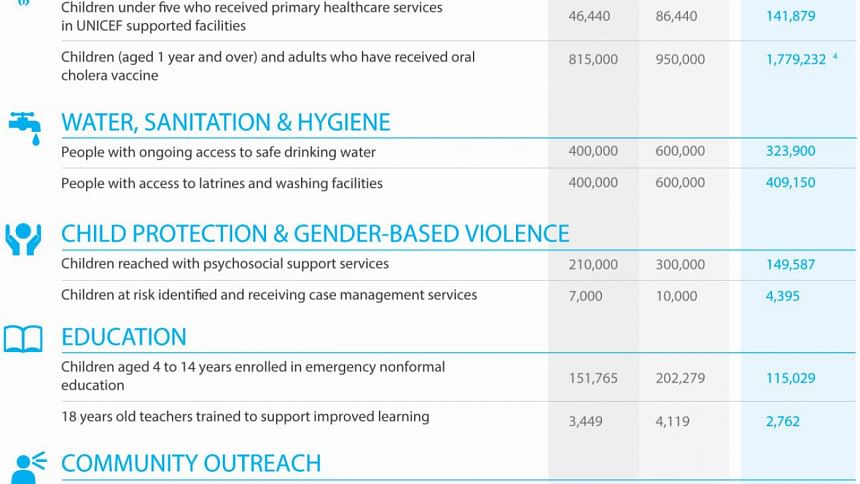
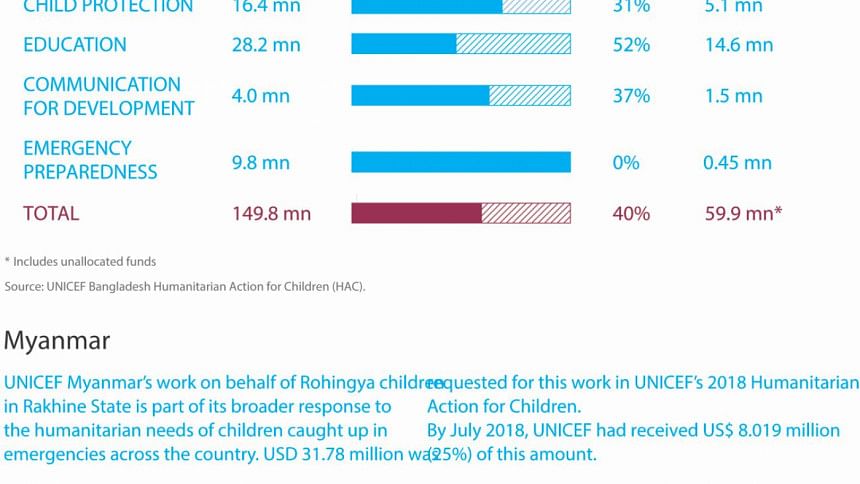
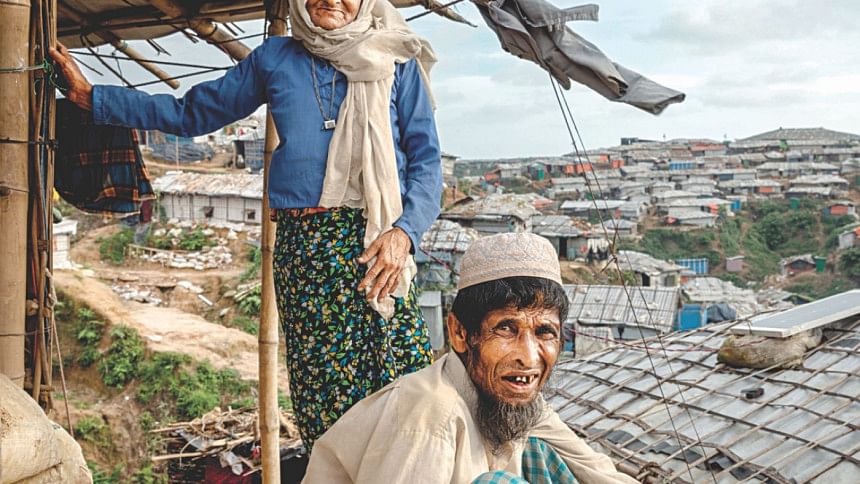

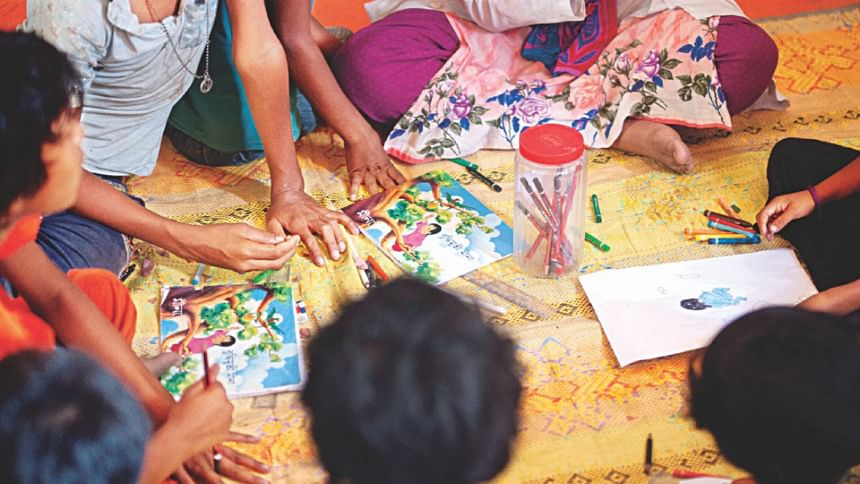

 For all latest news, follow The Daily Star's Google News channel.
For all latest news, follow The Daily Star's Google News channel. 



Comments